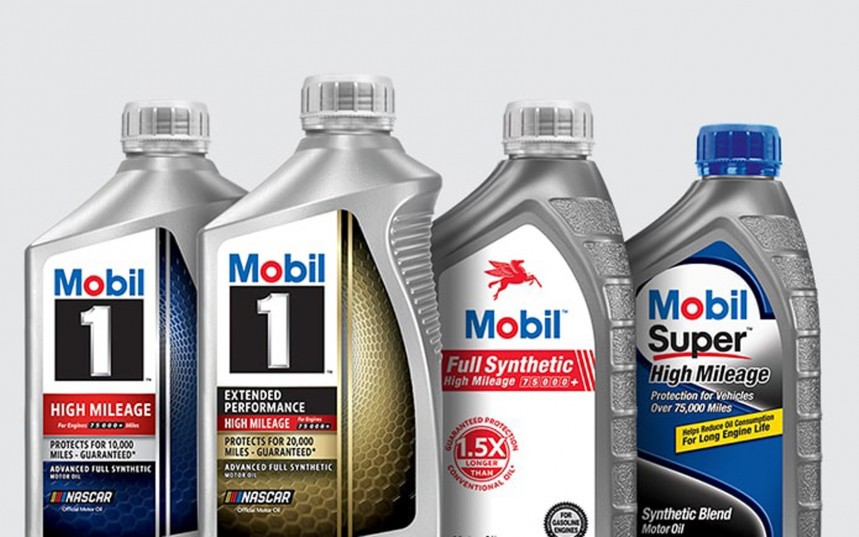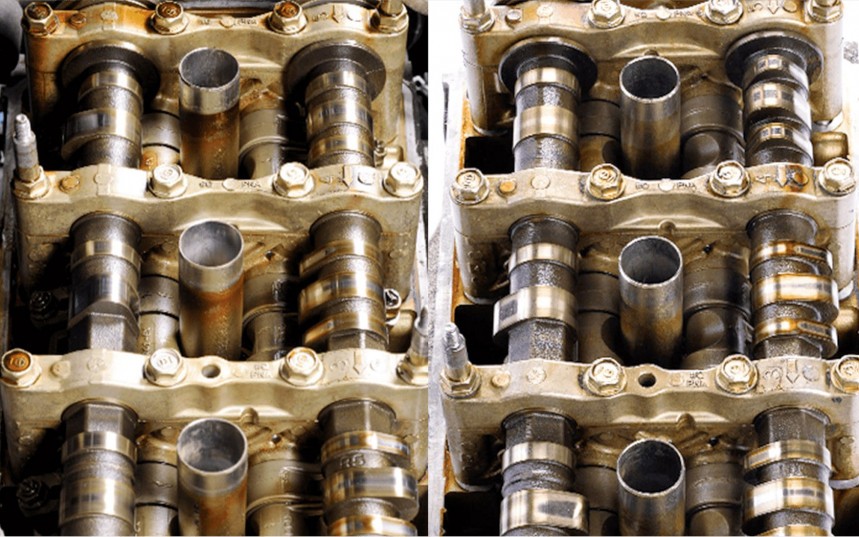Even for major gearheads, choosing the right oil for your car can cause many headaches, so if manufacturer specifications and the multitude of brands weren’t enough, we now have an influx of high mileage oils to consider.
Gone are the simple days when you had two or three types of engine oil to choose from because established brands have expanded their product ranges exponentially nowadays and have become global.
Among those products are high mileage oils, advertised as specifically developed for high mileage engines. Some of them are partially synthetic, but most established brands like Castrol, Mobil 1, Pennzoil, or Valvoline offer fully synthetic products which are generally superior.
Like all modern engine oils, their secret ingredients are the additives which in this case are designed to make engines with 75,000 miles (120,700 km) or more run smoother, reduce sludge buildup, and revitalize seals and gaskets. To what extent they do that depends on a variety of factors.
If the engine in question is a Mercedes-Benz M111 from the nineties that was decently maintained, it might do all those things even if the unit has racked up more than 200,000 miles (321,868 km) because that’s a reliable, well-built engine. If maintained, it’s proven to run-on low-quality oil just fine, so why wouldn’t a good high mileage oil help it run more smoothly?
This type of oil has been widely used, and many have reported noticeable improvements. Still, you should not expect it to perform miracles with an engine that received inadequate maintenance, has mechanical damage, or lubrication system issues.
I have talked with many mechanics about these oils in the past three years, and they agree that sludge is visibly reduced in some engines with small amounts of buildup. But then again, a normal, high-quality full synthetic oil can have the same effect, especially if you change it more frequently than specified by the carmaker.
On the other hand, you can give poorly maintained engines oil changes every week for a year, and it still won’t solve the problem. So, if your car’s engine is neglected or susceptible to significant sludge buildup, don’t expect high mileage oil to help.
Another characteristic that is heavily advertised is its ability to revitalize seals and gaskets. Yes, these oils contain some additives and seal conditioners that cause them to swell and become more effective. How effective is determined by the extent of their wear, so it might do the trick with some of them. However, those that are damaged will need to be replaced.
Most people also neglect to check if the oil meets manufacturers specifications, a major omission that can cause more harm than good. Using an oil that wasn’t designed for your car’s engine can significantly increase wear, even if the label states otherwise. Don’t get swept up by the advertising, and make sure to check specifications first.
In conclusion, you should use this type of oil if you have a car with more than 75,000 miles (120,700 km) to mitigate further wear of its old yet fully functional, well-maintained engine.
Among those products are high mileage oils, advertised as specifically developed for high mileage engines. Some of them are partially synthetic, but most established brands like Castrol, Mobil 1, Pennzoil, or Valvoline offer fully synthetic products which are generally superior.
Like all modern engine oils, their secret ingredients are the additives which in this case are designed to make engines with 75,000 miles (120,700 km) or more run smoother, reduce sludge buildup, and revitalize seals and gaskets. To what extent they do that depends on a variety of factors.
This type of oil has been widely used, and many have reported noticeable improvements. Still, you should not expect it to perform miracles with an engine that received inadequate maintenance, has mechanical damage, or lubrication system issues.
I have talked with many mechanics about these oils in the past three years, and they agree that sludge is visibly reduced in some engines with small amounts of buildup. But then again, a normal, high-quality full synthetic oil can have the same effect, especially if you change it more frequently than specified by the carmaker.
Another characteristic that is heavily advertised is its ability to revitalize seals and gaskets. Yes, these oils contain some additives and seal conditioners that cause them to swell and become more effective. How effective is determined by the extent of their wear, so it might do the trick with some of them. However, those that are damaged will need to be replaced.
Most people also neglect to check if the oil meets manufacturers specifications, a major omission that can cause more harm than good. Using an oil that wasn’t designed for your car’s engine can significantly increase wear, even if the label states otherwise. Don’t get swept up by the advertising, and make sure to check specifications first.
In conclusion, you should use this type of oil if you have a car with more than 75,000 miles (120,700 km) to mitigate further wear of its old yet fully functional, well-maintained engine.








